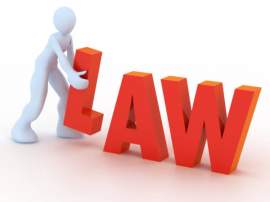
Identifying the Accurate Legal Rules

Popular In Paralegal
Defendants Right To Appeal Common Law Heritage Functions Of Law Infancy Insanity Intoxication Judicial Interpretation Common Law Legal Analysis Litigation Pretrial Motions Third Party Rights Legal Research Validation Roles Of Paralegals In Adr Paralegal Classification Of The Law
Identifying the accurate legal rules of a given legal proceeding seems like an obvious element to legal analysis and argument, but it must be remembered that the legal system is a vast organism, comprising numerous categories and jurisdictions, and is always in an ongoing state of flux due to changes in interpretation facilitated by arguments and precedents. Enacting any legal action involves an accurate identification of the rules of law applicable to a situation, because inaccurate provision of an argument on the wrong rule of law will invalidate the argument immediately, regardless of how convincing or supported the argument is.
Again, this may seem like a fairly basic means of which to base an action, and in many regards, it is. Sometimes, the determination of a legal action could be a simple as viewing a law and determining that there is ground to pursue a legal action because the law has been violated.
However, where it can become somewhat tricky is through the determination of legal precedents, where interpretations of a law can have been established through a pre-existing court case, and that interpretation has superseded the written law, meaning that the legal action may be invalid or need to be mended based on the new precedent. “Clashes of precedent” in these situation are not uncommon, where two sides of a persuasive legal argument can use differing precedents to argue for their interpretation of the law, at which point it is up to the court to determine which law has greater validity (usually it is a judge would make the determination).
Complicating these terms further is that the legal system is broken into numerous different sections and subsections, namely between criminal and civil law, and within those into numerous different subcategories.
Within criminal law, understanding the rule of law can mean making a determination of the nature of law that has been violated, such as whether an action that led to a death was either negligence or falls under the auspices of homicide. In civil law, this could involve deciding whether an action is applicable under the rules of tort law, like malpractice, or under contract or even statute law.
It is in these determinations of applicable laws that the process of legal argument and analysis becomes incredibly difficult and complex, and it is for this reason most legal firms and organizations with legal departments often have a support teams of paralegals, whose job it is to research legal rules and rulings, and provide them to the lawyers who oversee them, who then determine if the argument is worth following up on.
Legal briefs are then compiled, which consist of complex written arguments that have to often be as dialectical a possible, meaning they must account for counterarguments, reinterpretations, and misinterpretations that can undermine a legal argument. Therefore, legal arguments become complex means by which all loopholes have to be closed and sealed before savvy attorneys and their legal staff can present them to any legal body, either to a court or opposing legal organization.
NEXT: What is Legal Analysis?





















